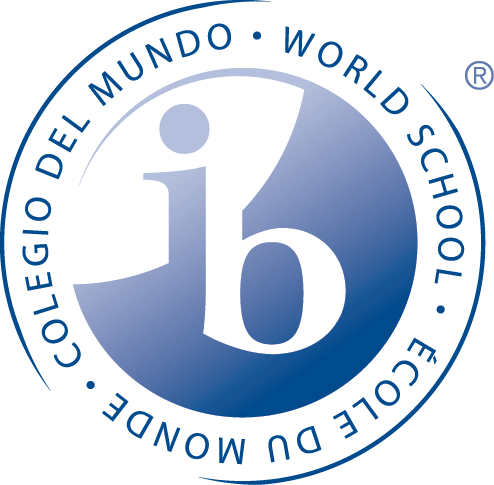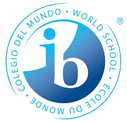

Primary Years Program
-
Boyd Elementary is one of only four elementary schools in Missouri authorized to offer the International Baccalaureate Primary Years Program. PYP is an approach to education which challenges each learner at his/her own level to become an internationally minded person.IB PYP focuses on the total growth of the developing child by offering an international, inquiry based curriculum of themes that go across all subjects in the school. All students receive weekly second language instruction in Spanish. Boyd Elementary participates with nearby Drury University as a partner school, which improves academic performance by addressing developmental issues that impact a child’s academic progress.
There are no tests to gain admission, and no IQ or other requirements. PYP is for students and families who believe that education is a key to a successful life.
"The PYP aims to achieve a balance between the search for meaning and understanding and the acquisition of essential skills and knowledge." - Kevin Bartlett, PYP Originator from The Vienna International School
Internationally Minded
-
At Boyd Elementary an internationally minded person is someone who demonstrates the attributes of the Learner Profile. These are qualities determined to be most important in creating positive and productive citizens of the world.
• Inquirers - I am curious and know how to discover answers to many of my questions.
• Knowledgeable - I explore big ideas that are important.
• Thinkers - I use my thinking skills to make good choices and solve problems creatively.
• Communicators - I understand and share ideas in more than one language.
• Principled - I am fair, honest and responsible. I can make good decisions about what is right and wrong for me.
• Open-Minded - I am comfortable with differences. I welcome and respect other people’s points of views and ways of doing things.
• Caring - I am concerned about other people’s needs and feelings. I believe it is important to help others.
• Risk Takers - I try new things, love to explore, and confidently share my experiences.
• Balanced - To be healthy, it is important for me to balance the needs of my mind and body.
• Reflective - I think about and discuss my learning, skills, and products.This means our students are taught why they should know something and how it connects to other subjects and the real world. We believe real learning always involves taking action. Learners are given skills to use their own process of learning rather than trying to memorize all of the answers. All learners at Boyd Elementary focus on powerful questions as a characteristic of good students. Critical thinking, communication, collaboration and creativity (21st century skills) have always been a part of our school’s approach to education. It means opportunities to learn about global issues while we take action locally.
SPS IB Programs
-
• Central High School was the first authorized IB school in the area with DP being approved at CHS by the IBO in 2002.
• Boyd Elementary and Field Elementary were authorized in 2009 by a visiting team from the IBO.
• Pipkin Middle School was authorized to offer the MYP in early 2010.
• Rountree Elementary was authorized to offer the PYP curriculum in 2013.Together these programs offer the only K-12 IB learning continuum in the entire Midwest United States. This is an exceptional benefit to the SPS community as each of these schools accept a certain number of transfers into their programs each year from anywhere within the Springfield R-12 school district.
PYP Attitudes
-
The PYP Attitudes are what learners do daily to become an internationally minded citizen. We think of attitudes as steps on the journey to become what the profile describes. As Winston Churchill said, “Attitude is a little thing that makes a big difference.”
• Appreciation - Seeing and being thankful for the wonder and beauty of our world.
• Commitment - Being responsible for my learning, showing self discipline and perseverance. Sticking with a difficult task until it is completed.
• Confidence - Knowing I can do it! Having courage to take risks, using what I have learned, and making good choices.
• Cooperation - Working with others and being willing to lead or follow as needed.
• Creativity - Using my imagination while thinking and doing things.
• Empathy - Being able to put myself in someone else’s place in order to understand her or him.
• Enthusiasm - Being excited about learning and life.
• Independence - Thinking and acting on my own.
• Integrity - Being fair and honest.
• Respect - Showing that I care for others, our world, and myself.
• Tolerance - Understanding, appreciating, and celebrating differences in each other.
Additional Information
-
Textbooks: Because the IB PYP philosophy believes that students learn best through authentic inquiry textbooks become a resource rather than the curriculum. Each PYP school will use a wide range of resources that best meet to students’ individual needs and learning styles. The IB PYP also recognizes that it is not knowledge alone that makes a learner successful, but the skills and attitudes they develop along the way.
Foreign Language: Every student in a PYP school learns a foreign language starting in Kindergarten. At Boyd Elementary the students have Spanish language classes twice a week.
Homework: Like most schools, students at a PYP school will have some homework. A misconception that many people have of the IB program is that there are extremes in homework. The homework assigned is not overwhelming and kids still have time for a variety of after school activities. Long-term and large projects are given ample time and warning to complete.
Portfolios: A regular part of documenting student growth and reflections that can be viewed by the parent at anytime. After the completion of grade 5, a copy of their portfolio will be presented to their family as an educational keepsake.
Transdisciplinary Themes/Units of Inquiry
-
Transdisciplinary is the word that IB uses to describe learning and skills that apply across all subjects - it is interconnected and can be applied to real life. A transdisciplinary principle stretches across math, science, communication arts, social studies, health and ties it all together. It is not isolated to one subject. Six Transdisciplinary themes organize our program of inquiry into units of study.
• Who We Are
• Where We Are in Place and Time
• How We Express Ourselves
• How the World Works
• How We Organize Ourselves
• How We Share the PlanetThese themes form the backbone of our curriculum and are each expressed by a specific central idea and inquiry statements. A Unit of Inquiry usually lasts for about six weeks and each grade connects to each of the six transdisciplinary themes throughout the school year. Our PYP curriculum map shows how these units are connected and related to each other throughout the school year. The units are where everything comes together – Inquiry key questions, PYP attitudes and profiles, transdisciplinary skills and theme, and action.
Our approach to the structure of each day is based on big concepts rather than time spent on individual subject areas. At our school connections are at the heart of each day-the more, the better. The program culminates in a unit called Exhibition during 5th grade. The exhibition combines all of the program elements into a coherent whole spotlighting the students themselves.
A Unit of Inquiry is the big picture of what each grade studies throughout the school year.
The vision of our curriculum is the integration of as many disciplines as possible into the transdisciplinary theme. The curriculum overlaps in the three main areas of instruction, Literacy, Numeracy and the Program of Inquiry. The greater the overlap with contextual learning, the greater the ability of the learner to make sense of the studies.
The core of the instructional philosophy in a PYP school is known as constructivism. Students have the power to be involved and make choices at every level of their educational cycle. Students are taught to be active inquirers in their own learning. We give students instruction of how to ask a variety of questions to thoroughly explore learning. We call these questioning skills the key concepts.
"Intelligence organizes the world by organizing itself" Jean Piaget (1937)
About Exhibition
-
Exhibition is a special project for 5th grade students. Click here for more information
IB Organization
-
In 1965 a group of teachers from the International School of Geneva (Ecolint) created the International Schools Examinations Syndicate (ISES), which would become the International Baccalaureate Organization (IBO) in 1967. The IB headquarters were officially established in Geneva, Switzerland in 1968, for the development and maintenance of the Diploma Programme, which provided internationally acceptable university admissions qualification for young people whose parents worked as diplomats or with international and multi-national companies.The IBO continued to grow and develop the MYP (1992) and PYP (1997) curriculum and offer this to schools worldwide. The IBO oversees all IB schools and sends trainers and authorizing teams to examine and monitor participating schools.
Today the IBO authorizes schools worldwide to offer their educational programs in three levels: The Diploma Program (DP) in grades 11 and 12, The Middle Years Program (MYP) for grades 6-10, and the Primary Years Program (PYP) for pre K-5th grade. There are currently over 3,400 schools worldwide (in 144 countries) that offer IB programs, about 1,400 of those are in North America. The IBO website has more information at www.ibo.org.


